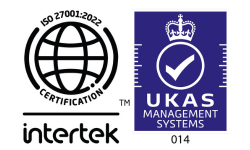Payroll managers have one of the most important jobs in a company, paying staff! When staff aren’t paid correctly or on time it can lead to frustration and dips in morale that can affect the overall productivity and performance of a company. While payroll is often overlooked, it plays a crucial role in the longevity and success of a company, as unhappy staff can hinder the growth of a business.
To ensure everyone is paid correctly and the business runs smoothly, the following tasks should be completed.
Use accurate data
When new staff are on-boarded data can often be inaccurate. As a payroll manager, it’s important to check with employees that their tax codes and personal details are correct, including whether they have a student loan and if they’re on the right plan. Ensuring all information is accurate from the very beginning of their employment will significantly reduce the chances of mistakes being made during payroll processes.
Verify timesheet information
It’s important to verify that timesheet information corresponds with employees’ hours and contract requirements. Making sure that staff are recording their hours accurately and that they meet their required working hours is essential to a successful and productive company. This helps businesses avoid time theft, where staff are working fewer hours than they’re meant to but still being paid their full salary.
A great way to combat this is to implement time and attendance software. It makes it easier for staff to track their own hours and deters them from recording extra ones that they haven’t worked, as they’ll clearly see how many unworked hours they’re recording.
At Payescape we understand the importance of preventing time theft and viewing tracked hours, which is why our time and attendance software allows staff to record their hours and can create real-time reports for payroll managers to review. This makes this crucial task less time-consuming and simpler to complete.
Ensure you know your payroll costs
All payroll managers should ensure that they know how much each employee costs their business. This should make it easier to spot inaccuracies within pay packets. During this process wages, benefits, tax and National Insurance withholdings, pensions and any sick pay should be taken into account. If this isn’t completed accurately costly fines, penalties or even business closure can occur.
Create and distribute payslips
It’s required for every company to provide their employees with a payslip. This should include information on gross pay, deductions, net pay and hours worked for that pay period. It can also include staff’s National Insurance number and tax code as well as their pay and deductions year-to-date.
At Payescape our outsourced payroll software can automatically pay staff and create and distribute payslips to all of your employees every payday. Automated payments can also be completed. This ensures your staff are paid correctly and on time consistently, avoiding your business facing any consequences for non-compliance as well as helping to keep your staff happy.
File tax reports
Tax and National Insurance payments need to be made to HMRC monthly. This will be based on what you owe, as reported on your Full Statement of Submission (FPS) in the previous tax month minus the reductions on any Employer Payment Summary (EPS). Your EPS should have been sent before the 19th of the current month.
If you don’t complete this on time, HMRC will send a late filing notice and will charge you a penalty unless you have a valid reason for late reporting. To help you navigate this it’s a good idea to make note of key dates such as essential payroll dates and bank holidays that may affect payroll.
We understand that this can be both overwhelming and difficult to keep up with, which is why our outsourced payroll can do all of this for you. We’ll ensure your payments and tax reports are completed accurately and timely to avoid any penalties or staff dissatisfaction.
Prepare for the following tax year
It’s important to prepare for the following tax year to guarantee a smooth transition in the new year. This involves reporting to HMRC on the previous tax year. The report must include information on:
- Employee’s pay.
- Payroll benefits.
- Any deductions made.
Furthermore, when preparing for the new tax year there are a few processes that need completing, including:
- Updating employee payroll records from the last day of the tax year.
- Provide your employees with a P60.
- Report employee expenses and benefits.
To learn more about how to prepare for the new tax year, read our blog.
Keep hold of records
It’s important to keep hold of all payroll records as HMRC could ask for them at any time. This enables you to be able to respond quickly if either your staff or HMRC have any queries.
Keep on top of minimum wage changes
The National Living Wage and National Minimum Wage rates change every tax year, making it important for you to keep track of them as employers must comply with them. The National Living Wage is the hourly rate those over 23 are entitled to and the National Minimum Wage is the hourly rate those between school leavers age and 23 are legally entitled to. As of the 1st of April 2024, the National Living Wage will be applicable for those 21 and above.
Keep up with payroll legislation
It’s critical that all employers and payroll teams stay on top of the latest payroll legislation. Gov.uk is a great place to review how the latest legislation changes will affect payroll.
We understand that many businesses can struggle to find the time to keep on top of the latest rules and regulations, which is why our outsourced payroll software is programmed to keep up with them and automatically apply them to your payroll processes. This guarantees that you stay compliant all year round with no consequences.
If you find your business struggles to keep up with these processes or would just like to free up some of their payroll and HR team’s time, get in touch with Payescape today to see how we can help.














